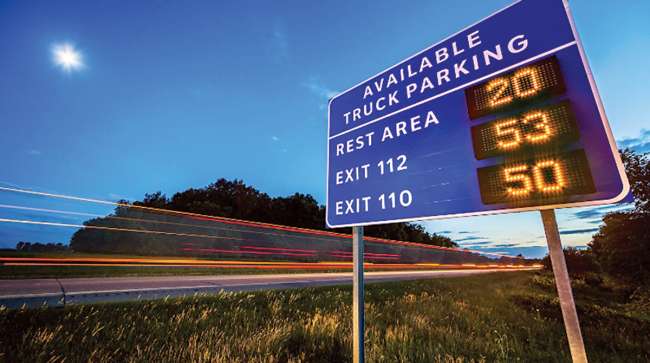Senior Reporter
Drivers, Carriers Have Different Concerns Regarding Driver Shortage, Retention

The nation’s motor carriers and their drivers see different priorities when it comes to issues facing the trucking industry, a new study found.
In the recent American Transportation Research Institute report listing its annual top 10 issues for trucking, motor carriers listed the driver shortage and driver retention as the top two. But commercial drivers place the shortage and retention much lower, fifth for driver retention and ninth for the shortage.
One year after the Federal Motor Carrier Safety Administration’s electronic logging device regulation was implemented, three related issues — hours of service, truck parking and the ELD mandate itself rank first, second and third with drivers. With motor carriers, HOS ranks third.

Brewster
“If the driver shortage is No. 1 and driver retention is No. 2 for carriers, then they better care about what’s on the drivers’ list,” ATRI President Rebecca Brewster told Transport Topics. “I think it’s interesting when the shortage shows up on the drivers’ side of the equation, personally, because that means they are feeling the effects of there not being enough drivers to go around.”
American Trucking Associations Chief Economist Bob Costello repeatedly has said that the industry is short at least 50,000 drivers and that number is expected to climb as older drivers retire. Younger men and women are not entering the workforce fast enough to replace them and keep up with expected industry growth.
The need to train and hire more qualified drivers is not new. The shortage has been a top-three issue in 12 of the 14 years ATRI has conducted its survey.

Reymer
“Carriers are impacted on a grander scale — versus drivers — with the challenging recruiting environment. Their pain is manifested through the absence of drivers for their trucks and/or turning down business due to a lack of enough drivers,” said Jeremy Reymer, founder and president of DriverReach, an Indianapolis-based driver recruiting and management company. “Drivers, on the other hand, are responding to the survey from their perspective. They are experiencing challenges with issues that impact them directly, such as truck parking and hours of service.”
Motor carriers and drivers ranked FMCSA’s Compliance, Safety and Accountability program fifth.
In the eight years since it was first introduced, motor carriers, government auditors and drivers have been critical of CSA’s data collection system.
| 2018 Rank | Commercial Drivers | Motor Carriers |
| 1. | Hours of Service | Driver Shortage |
| 2. | Truck Parking | Driver Retention |
| 3. | ELD Mandate | HOS |
| 4. | Driver Distraction | Transportation Infrastructure/Congestion/Funding |
| 5. | Driver Retention | ELD Mandate |
| 6. | CSA | CSA |
| 7. | Driver Health and Wellness | Driver Distraction |
| 8. | Transportation Infrastructure/Congestion/Funding | Tort Reform |
| 9. | Driver Shortage | Truck Parking |
| 10. | Automated Truck Technology | Federal Preemption of State Regulation of Interstate Trucking |
The Department of Transportation’s Inspector General has begun a congressionally mandated audit of an FMCSA corrective action plan intended to revamp the agency’s CSA methodology.
The audit will drill down on FMCSA’s early plan of attack to incorporate recommendations for CSA by a National Academy of Sciences academic panel that studied the agency’s CSA Safety Measurement System for 15 months.
IG auditors will assess how FMCSA is responding to deficiencies or opportunities identified in the academic panel’s June 2017 report, how the agency plans to address those deficiencies and how much it will cost to staff, enforce and collect data for what is known as an “Item Response Theory” method.
FMCSA said in its corrective action plan it will work more closely with states to collect data and improve the uniformity of police accident reports data. It also will investigate ways to collect data on such motor carrier characteristics as driver turnover rate, type of cargo, method and level of driver compensation and carrier vehicle miles traveled.
ATRI received more than 1,500 responses from a wide variety of motor carriers and commercial drivers. The report includes prioritized strategies to address each of the top 10 issues.
Staff Reporter Eric Miller contributed to this report.




